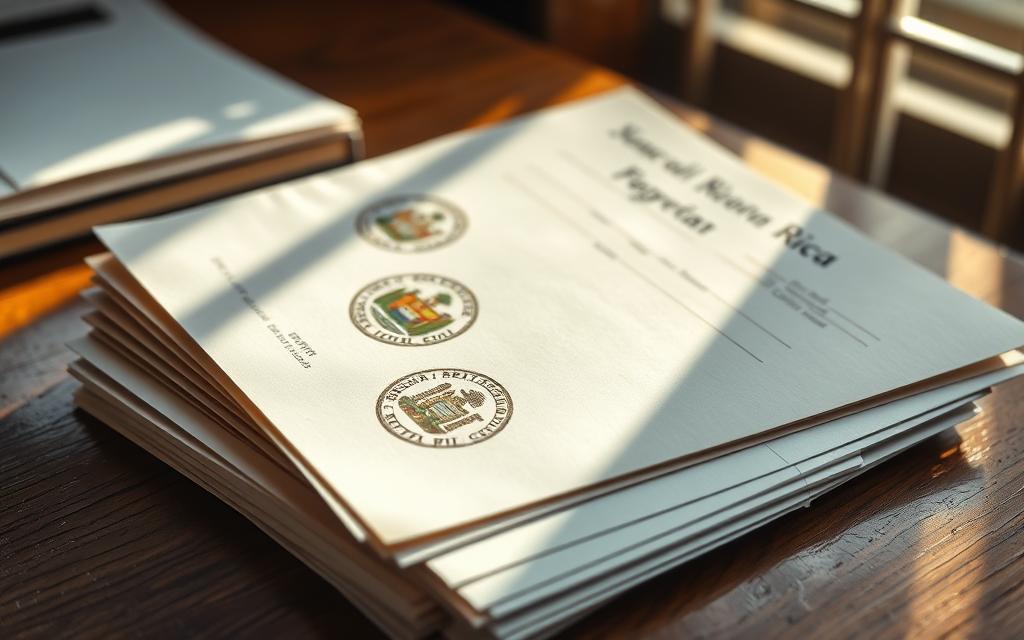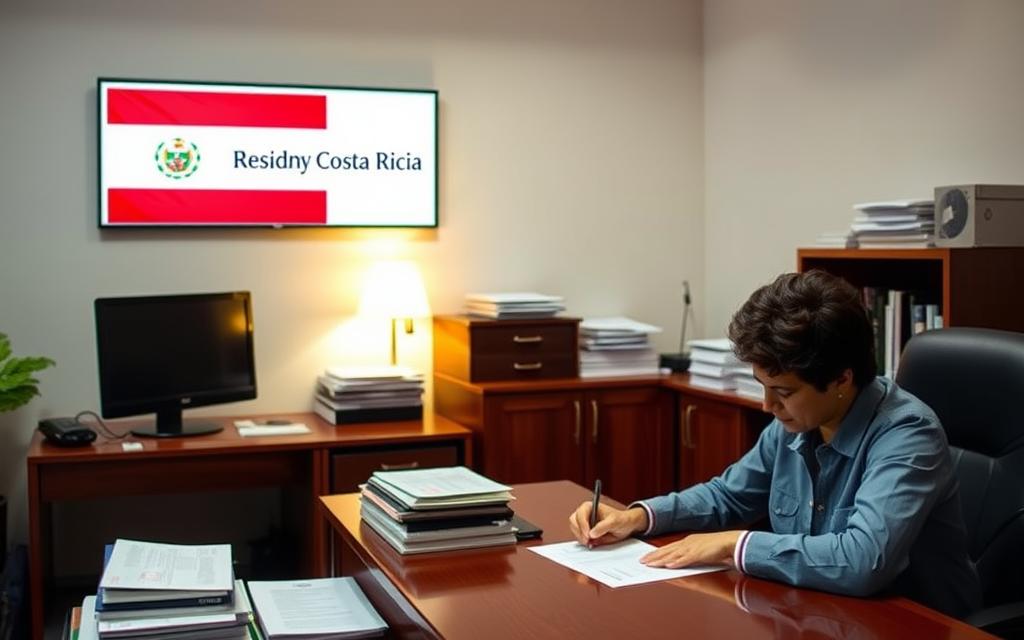Unlocking Costa Rica Family Residency: A Comprehensive Guide

Costa Rica has become a sought-after destination for individuals and families looking to enhance their quality of life and explore new opportunities in a welcoming environment. With its stable democracy, breathtaking natural beauty, and rich culture, this Central American country offers an attractive setting for those seeking to settle permanently or temporarily.
For those with direct family ties to a Costa Rican citizen, the Family Relationship residency grant provides a pathway to permanent resident status, promoting family reunification. We will guide you through the comprehensive process of obtaining residency in Costa Rica, covering the necessary requirements, document preparation, and application procedures.
Understanding Costa Rica Family Residency

With its welcoming immigration policies, Costa Rica's Family Residency program allows family members to reside together, enjoying the country's rich culture. Costa Rica offers a unique blend of modern amenities and natural beauty, making it an attractive destination for families.
What is Family Residency in Costa Rica?
Family Residency in Costa Rica is a category of residency designed for individuals who have close relatives that are either Costa Rican citizens or residents. This status allows family members to live together in Costa Rica, promoting family unity. To maintain this status, the beneficiary must not be absent from Costa Rica for more than six consecutive months, as per the residency requirements.
Benefits of Obtaining Family Residency Status
Obtaining Family Residency status in Costa Rica comes with numerous benefits. Family residents can live, work, and study in Costa Rica indefinitely, enjoying the same rights as Costa Rican citizens in many areas, including the ability to open bank accounts, establish businesses, and purchase property. They can also access Costa Rica's universal healthcare system after completing the necessary registration process. Moreover, family residents can travel in and out of Costa Rica with relative ease, provided they do not exceed the six-month absence limit. This status also paves the way for eventual application for Costa Rican citizenship, allowing for deeper integration into Costa Rican society and culture.
By granting family residents the right to work legally without additional permits, Costa Rica fosters a stable environment for families to thrive. The stable immigration status provided by Family Residency eliminates the need for regular renewals or proving ongoing income requirements, offering peace of mind for those looking to make Costa Rica their home.
Who Qualifies for Costa Rica Family Residency Requirements

To apply for family residency in Costa Rica, one must meet specific eligibility criteria based on their relationship to a Costa Rican citizen. The government has outlined several categories of family relationships that qualify for residency.
Eligible Family Relationships with Costa Rican Citizens
Costa Rica's family residency program is designed for immediate family members of Costa Rican citizens. Eligible relationships include being the spouse, parent, child, or sibling of a Costa Rican citizen. For instance, a spouse of a Costa Rican citizen can apply for residency by proving their marriage. For more information on related citizenship requirements, one can visit the provided link.
Parents of Costa Rican citizens can also apply by providing a birth certificate that indicates their name as parents. Children of Costa Rican citizens, whether minor or disabled, can qualify by presenting the birth certificate of the Costa Rican citizen, showing their parent's name. Siblings can apply if they are minors or have documented disabilities, requiring the applicant's birth certificate and, in the case of disabled siblings, a medical examination to prove the disability.
Special Considerations for Different Family Members
Different family members have unique considerations when applying for residency. For spouses, an interview process is often conducted to verify the authenticity of the marriage. Minor children of Costa Rican citizens have different provisions compared to adult children, with the latter having more limited options. Additionally, disabled family members require medical certification to support their application.
Blended families and step-relationships are also considered, but the application process can be more complex. In cases of adoption or modified parental rights, additional documentation is required to support the application. Understanding these special considerations is crucial for a successful residency application.
Essential Documents for Family Residency Application

When applying for family residency in Costa Rica, it's crucial to understand the necessary documents to gather. The application process requires a comprehensive set of documents that verify the applicant's identity, family relationships, financial stability, and criminal background.
Personal Identification Documents
Applicants must provide valid personal identification documents. This typically includes a passport with at least six months' validity and a birth certificate. These documents are essential for verifying the applicant's identity and age.
Proof of Family Relationship Documents
To establish family relationships, applicants need to provide specific documents. For instance, a marriage certificate is required for spouses, while children may need birth certificates that list both parents. These documents must be duly apostilled or legalized by the relevant authorities.
Criminal Background and Financial Requirements
Costa Rica requires applicants over 12 years old to submit a criminal record certificate from their country of origin or where they've resided for the past three years. This certificate must show no convictions and be properly authenticated. Additionally, applicants must demonstrate financial solvency through bank statements, a certified public accountant's certificate, or employment verification, ensuring they won't become a public charge.
It's also important to note that criminal record certificates are typically valid for six months from the date of issue. For U.S. citizens, an FBI criminal background check is required rather than state-level checks. Ensuring that all documents are correctly prepared and authenticated is crucial for a successful application.
Document Authentication and Preparation Process

To successfully navigate the Costa Rica family residency application process, it's essential to comprehend the document authentication and preparation requirements. The process involves several critical steps that ensure your documents are valid and recognized by Costa Rican authorities. Understanding these requirements will help you avoid potential delays or rejections.
Apostille vs. Consular Authentication Methods
Documents for Costa Rica family residency applications often require authentication. There are two primary methods: apostille and consular authentication. If your document originates from a country that is part of the Hague Convention, it can be apostilled. For more information on the process, you can refer to our comprehensive guide on Costa Rica family residency.
An apostille is a simplified form of authentication that is recognized among member countries. For countries not part of the Hague Convention, consular authentication is required. This involves verifying the document at the Costa Rican Consulate nearest to the place of issue.
Translation Requirements for Non-Spanish Documents
All documents submitted for Costa Rica family residency applications must be in Spanish. If your documents are in another language, they need to be translated by an authorized translator. This ensures that the Costa Rican authorities can accurately assess your application.
Document Validity Timeframes
Most official documents, including birth certificates and criminal background checks, are valid for six months from their issue date. This creates a timeline pressure for applicants to complete the application process. It's crucial to plan the issuance and submission of documents carefully to avoid expiration during the application review process.
To manage this effectively, applicants should request documents close to the time of application submission and ensure they understand the issue date on each document. For documents that take longer to obtain, such as FBI background checks for U.S. citizens, special consideration should be given to their validity period.
Step-by-Step Application Process

Navigating the Costa Rica family residency application process can be complex, but understanding the steps involved can simplify the journey. We will guide you through the essential steps to ensure a smooth application process.
Initial Application Submission
The first step in the application process is submitting your initial application. This involves gathering all required documents, including personal identification, proof of family relationship, and financial statements. It's crucial that your name appears correctly on all documents to avoid any discrepancies. We recommend double-checking all information before submission.
Fingerprinting and Background Check Procedures
As part of the application process, applicants are required to undergo fingerprinting and background checks. This step is mandatory for verifying the applicant's identity and ensuring they do not have a criminal history that could affect their residency status. Details on where and how to complete this step will be provided during the application process.
Consular Registration Requirements
For applicants outside of Costa Rica, consular registration is a critical step. This involves registering your application with the Costa Rican consulate in your home country. We advise checking with the relevant consulate for specific requirements and procedures.
Application Fees and Payment Methods
The application process involves several fees, including a primary application fee of US$50, which must be deposited into Banco de Costa Rica account 242480-0 in the applicant's name. A deposit receipt will be provided, which must be included with the application package. Additional fees include ¢125 plus ¢2.50 for each sheet in the application. All payments must be made correctly to avoid complications. For more detailed information on the application process, you can visit our guide on obtaining residency in Costa.
It's essential to keep all deposit receipts and proof of payment as they are required for the application. If you're applying from within Costa Rica on a tourist visa, an additional US$200 fee applies for the change of immigration status. Payments can be made at Banco de Costa Rica branches, and it's crucial to obtain properly formatted receipts.
Post-Approval Requirements and Responsibilities

Securing family residency in Costa Rica is just the beginning; there are ongoing responsibilities to be aware of. After your application has been approved, you'll need to comply with certain requirements to maintain your status as a resident.
Costa Rican Social Security Registration (CCSS)
One of the critical post-approval steps is registering with the Caja Costarricense de Seguro Social (CCSS), Costa Rica's social security system. This registration is mandatory for all residents, including those with family residency status. The CCSS provides medical insurance, which is essential for accessing healthcare services in Costa Rica. To register, you'll need to visit a local CCSS office with your residency documentation and other required personal identification.
Maintaining Your Residency Status
To keep your residency status valid, you must not be absent from Costa Rica for more than six consecutive months. Prolonged absences can lead to the cancellation of your residency status. It's also crucial to maintain current payments with the CCSS, as falling behind on these payments can cause issues during residency renewals. Additionally, you'll need to renew your DIMEX card (residency card) as required, typically every two years, by submitting the necessary documentation and paying the applicable fees.
Properly documenting your entries and exits from Costa Rica is vital to demonstrate compliance with the six-month presence requirement. If you anticipate being away for an extended period, you may need to request special permission from the immigration authorities. Keeping your address and other personal information up to date with the relevant authorities is also a key responsibility of residency holders.
Conclusion
Understanding the intricacies of Costa Rica's family residency process is crucial for a successful application. We've provided a comprehensive guide to navigating this process, from understanding eligibility requirements to maintaining your status after approval. The family residency category offers one of the most direct paths to permanent residency in Costa Rica for those with qualifying family relationships to Costa Rican citizens.
Costa Rica offers a variety of residency options to suit different needs and circumstances. For those seeking additional information or professional assistance with their family residency application, resources are available through immigration attorneys and consultants specializing in Costa Rican immigration law, such as those at www.jaroscr.com.
It's essential to remember that immigration laws and procedures can change over time. Therefore, consulting with a qualified immigration attorney is always recommended before beginning the application process. For specific questions or professional guidance, you can contact immigration specialists at info@jaroscr.com or +(506)7182-8969. By following the outlined steps and seeking professional help when needed, applicants can ensure a smooth and successful residency application process in Costa Rica.


